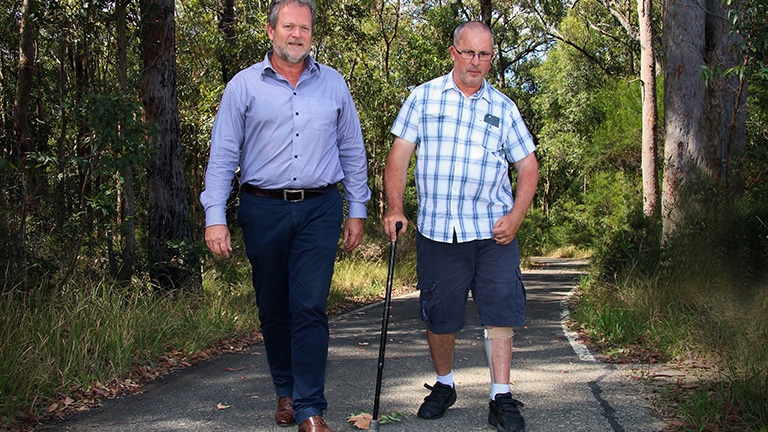
Rehabilitation services are set for an overhaul after the University of Newcastle launched the first Centre for Rehab Innovations (CRI).

Medical rehabilitation services are set for a significant overhaul, following the launch of Australia’s first Centre for Rehab Innovations (CRI) at the University of Newcastle (UON).
The Centre aims to be a “one-stop-shop” for business, industry and government sectors to work with researchers and clinicians in hospital, residential and aged-care settings, developing new interventions that promote health resilience and patient recovery.
Among the CRI’s founding members are Professor Michael Nilsson and Associate Professor Michael Pollack, both specialists in rehabilitation medicine, along with neuroscientist Associate Professor Rohan Walker and engineering expert Professor Sarah Johnson.
They will also draw in expertise from a range of disciplines, including architecture, design, nursing, psychology, occupational therapy and physiotherapy.
UON Senior Deputy Vice-Chancellor Professor Kevin Hall believes the future of medical rehabilitation will be guided by biomedical principles and neuroscience, with an increased focus on personalised residential rehabilitation.
“The CRI’s mandate is to engage with industry stakeholders to develop individualised rehabilitative solutions in residential and aged-care environments,” Professor Hall said.
“Creating this comprehensive, integrated and state-of-the-art treatment platform will help deliver the best rehabilitative care, with the goal of allowing patients to recover in their home environments faster and more fully.”
Professor Nilsson said he was proud to work with a team of such highly-renowned leaders, who maintained active links with partners such as medical technology firms, health and aged-care providers, insurers and government research agencies.
“It places the Centre in an optimal position to deliver innovative university-industry solutions in rehabilitation settings,” he said. “These will include neuro-architecture inspired redesign, residential telemedicine, sensor-enriched patient engagement, comprehensive allied health training and carer-training processes.
“The initiative complements the Hunter Medical Research Institute’s ongoing work in Out-of-Hospital care. With sustainable, effective solutions, implemented as part of long-term recovery strategies, we can improve patient outcomes and reduce costs to the community.”
Professor Hall added that the Centre represented a natural extension of Professor Nilsson’s commitment to establishing international initiatives in medical rehabilitation.
“Professor Nilsson oversaw the establishment of Sweden’s first translational centre in neuro-rehabilitation, the Centre for Brain Repair and Rehabilitation in Gothenburg, and was principle investigator and director for the pioneering, multidisciplinary Culture and Brain Health rehabilitation research initiative.
“Together with national expertise, he has established Australia’s first NHMRC Centre for Research Excellence in stroke recovery and rehabilitation.”
* HMRI is a partnership between the University of Newcastle, Hunter New England Health and the community.